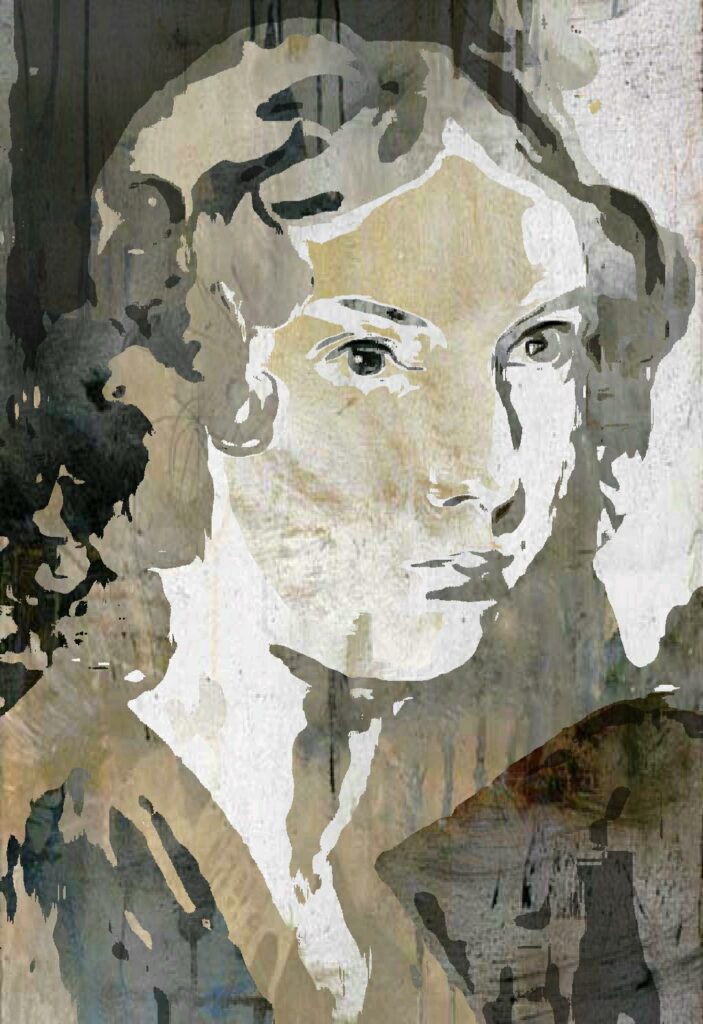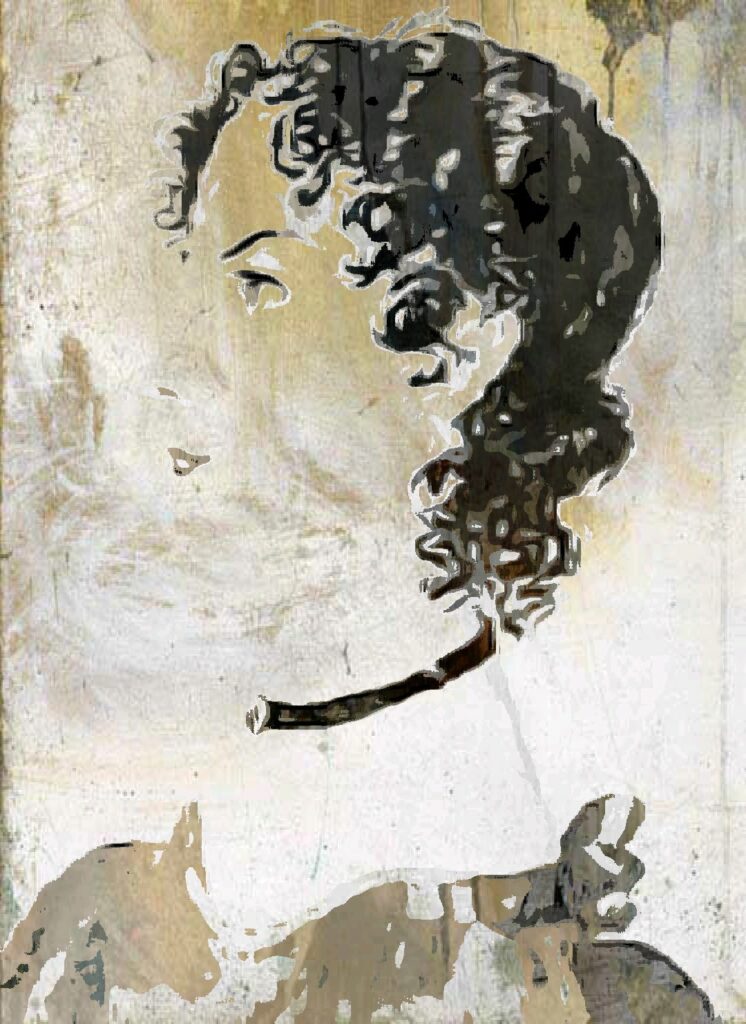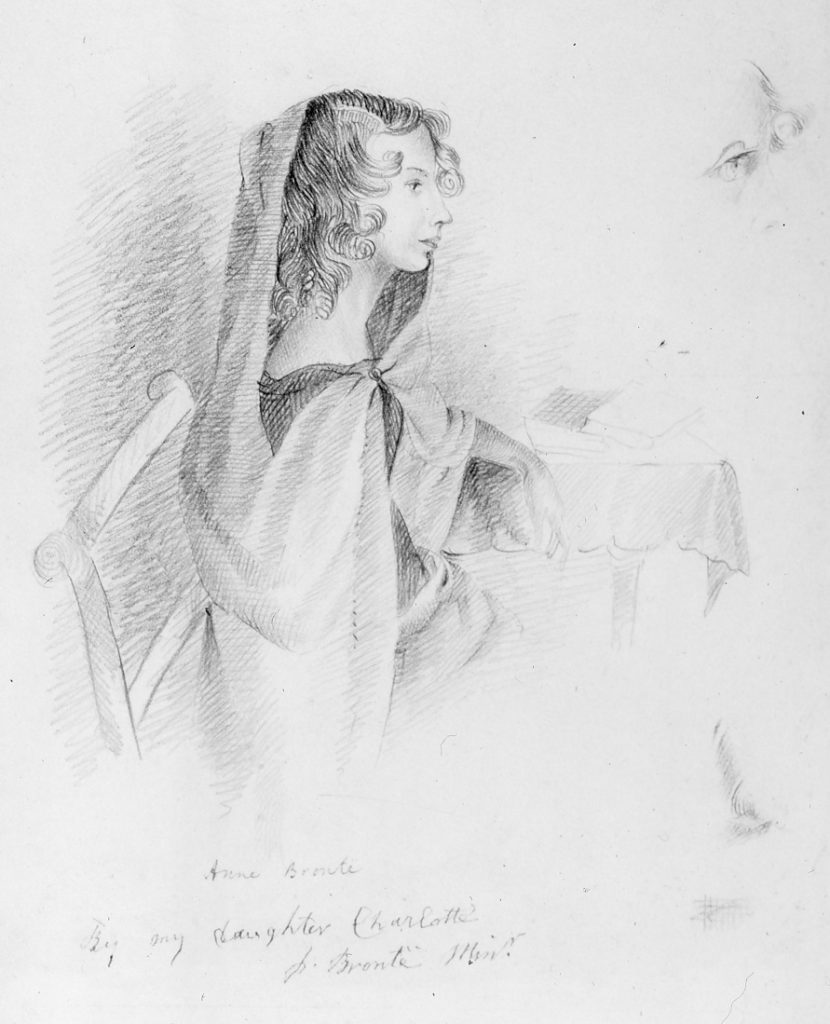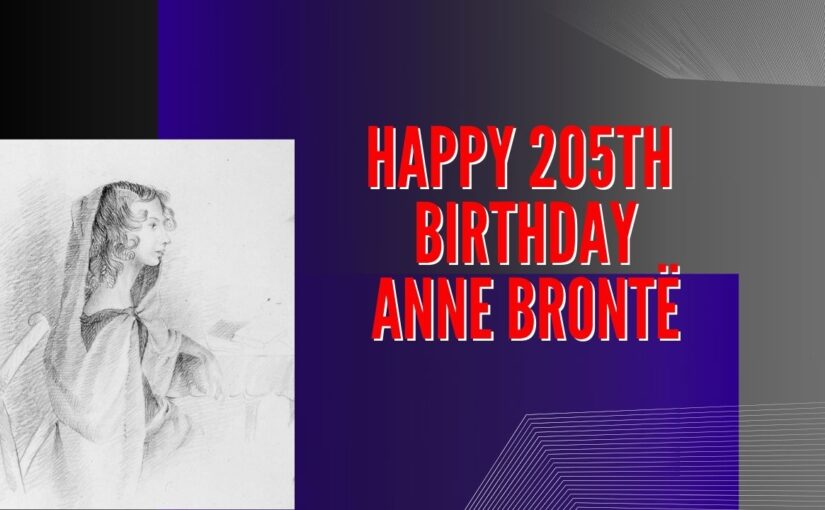This week has marked a joyous anniversary in the Brontë calendar, for it was on this week in 1820 that Anne Brontë was born in Thornton, near Bradford. The sixth and final child of the Brontë family, she has gained eternal fame as the youngest of the three writing Brontë sisters – and in my opinion her poetry and prose means that she deserves to be considered the equal of Charlotte and Emily Brontë.
In previous years we’ve marked this anniversary by looking at Anne Brontë’s skills as a writer, and at her place in the Brontë family and the wider world around it. Today we’re going to look at two first person accounts of Anne by those who had met and known her.

There can little doubt that Anne Brontë was deeply loved by her family. She was the favourite of Aunt Branwell, who became like a second mother to the Brontë siblings, and she and Emily were like twins, walking together arm linked in arm. Charlotte Brontë called Anne the darling of her life, but what did the people of Haworth think?
The first account is from a Sarah Wood. By 1900 she was running a clothier’s shop in Haworth, but as a child she had been taught in Haworth Sunday school – and her teachers were some rather familiar children of the parish priest. Sarah recalled:
‘“Do I remember the Brontës?” was her greeting. “I should rather think I did. Miss Charlotte was my Sunday-school teacher. She was nice. But Miss Anne was my favourite: such a gentle creature.”’

Next we turn to someone who, as a youth, came to know the Brontë family very well. Tabitha Ratcliffe gave an interview in 1910 in her old age. Her maiden name was Tabitha Brown, she was the daughter of Haworth sexton (and friend of Branwell Brontë) John Brown, and the sister of parsonage servant Martha Brown. On occasion, Tabitha too was called upon to act as an additional servant to the Brontë family. She gave this fascinating recollection:
‘Her most interesting relic is a photograph on glass of the three sisters. “I believe Charlotte was the lowest and the broadest, and Emily was the tallest. She’d bigger bones and was stronger looking and more masculine, but very nice in her ways,” she comments. “But I used to think Miss Anne looked the nicest and most serious like; she used to teach at Sunday school. I’ve been taught by her and by Charlotte and all.” And it is on Anne that her glance rests as she says, “I think that is a good face.” There is no doubt which of the sisters of Haworth was Mrs Ratcliffe’s favourite.’

In the latter half of the nineteenth century a Haworth church guide was also interviewed, and he too recalled Anne Brontë in glowing terms:
‘Standing beside Charlotte’s last resting-place, I questioned my conductor respecting her, and found him at once ready and willing to oblige me with all the information in his possession. He had been but a little boy, he said, when all the family were living, but he remembered the three sisters well, and had often run errands for Mr Patrick. They used to take a great deal of notice of him when he was little; but Miss Annie was his favourite, perhaps because she always paid him so much attention. Baking-day never came round at the parsonage without her remembering to make a little cake or dumpling for him, and she seldom met him without having something good and sweet to bestow upon him.’
In my latest House Of Brontë video, I look at these accounts, and at just why Anne Brontë is so important today, and why her works are still so rewarding to read:
It was great to see that Anne Brontë was remembered in Thornton, the place of her birth, this weekend. The Brontë Birthplace put together what seemed to be a splendid Anne Brontë event. It looks like it was very well attended, and it has received unanimously positive feedback. I regret that I couldn’t attend due to wedding preparations, but I will certainly get to some of the events put on by the wonderful Brontë Birthplace team later this year. Here is a picture, from their social media, of the volunteers who helped to make the Anne Brontë celebration such a success. Well done to all involved, and to all who attended!

I hope to see you next week for another new Brontë blog post, and in the meantime let’s all join together to say ‘happy 205th birthday Anne Brontë!’

another wonderful account of this sweet girl… Thank you again
Geez. There’s that mention of that photograph again. I wish you would do a post on it after all this time. I realise there’s the politics involved but. With AI we could see them all smiling back at us, laughing, walking around. Such a haunting photo.
Great post. What are the theories around the ‘most interesting relic is a photograph on glass of the three sisters.’ What are your theories around it. Does it exist? Did it ever?
I will do a post about it for next Sunday – I think it did exist.
I, too, loved all the bronte sisters and I also believe that Anne was the better looking, but I believe charlotte was the best writer I loved all 3 of the sisters and I would like to thank you for your article